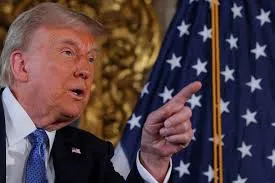
Trump’s Tariff Threat: What It Means for EU’s Oil and Gas Purchases
President-elect Donald Trump has issued a warning to the European Union (EU), stating that it must increase its purchases of American oil and natural gas to address the trade deficit between the two economies.
He emphasized that failure to do so would result in the imposition of tariffs on EU imports.
In a post on his social media platform, Trump highlighted the significant trade imbalance, noting that in 2022, the U.S. had a $131.3 billion trade deficit with the EU.
He stated, “I told the European Union that they must make up their tremendous deficit with the United States by the large scale purchase of our oil and gas. Otherwise, it is TARIFFS all the way!!!”
The EU has been seeking to diversify its energy sources, especially in light of the ongoing conflict in Ukraine and the need to reduce reliance on Russian energy. The U.S. has become a leading supplier of liquefied natural gas (LNG) and oil to Europe.
European Commission President Ursula von der Leyen has previously indicated the EU’s openness to increasing energy imports from the U.S., stating, “Why not replace [Russian gas] by American LNG, which is cheaper for us and brings down our energy prices?”
In response to Trump’s statements, an EU spokesperson expressed the bloc’s readiness to strengthen economic ties with the U.S., particularly in the energy sector. They noted, “The EU and US have deeply integrated economies, with overall balanced trade and investment.
We are ready to discuss with President-elect Trump how we can further strengthen an already strong relationship, including by discussing our common interests in the energy sector.”
However, some European leaders have criticized linking energy imports to trade tariffs. Former Italian Prime Minister Enrico Letta commented that it is “incorrect” to connect oil and gas imports to tariffs on other goods, as they are “completely different” topics.
Trump’s approach to trade has been a central theme of his political agenda, with previous tariffs imposed on steel and aluminum imports during his first term, leading to trade tensions with various partners, including the EU.
As he prepares for his second term, these recent statements suggest a continuation of his assertive trade policies.
Leave a Reply